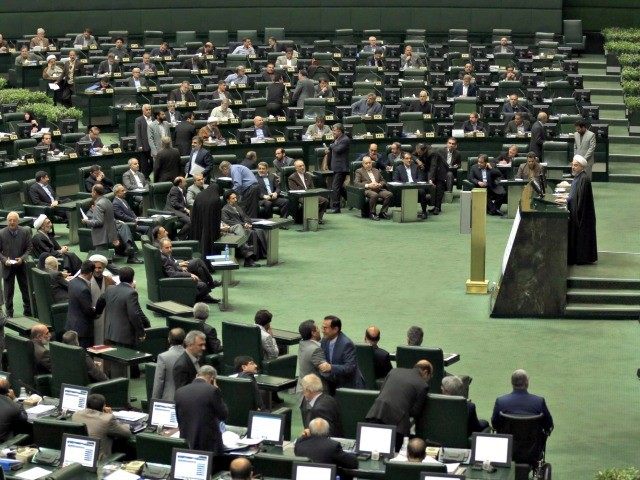In a sign of growing tensions, Iran’s Parliament has released a “fact sheet” which calls for substantial revisions to the framework agreement it reached with the P5+1 countries.
The lengthy document published by Fars news is at odds with the deal outlined in a U.S. factsheet published two weeks ago. The document calls for the duration of the entire agreement to be reduced to five years during which Iran would be allowed to operate 10,000 centrifuges. The U.S. factsheet says the deal will last at least 10 years and limits Iran to approximately 6,000 centrifuges.
In addition, the new document once again rules out inspections at any Iranian military facilities and says bluntly that the IAEA’s additional protocol is only a pretext for “preplanned plots against the Islamic Republic of Iran.”
Perhaps the most significant suggestion is that the entire deal should be reversible “in case of the two sides’ non-commitment to their undertakings.” It’s not completely clear what this means, but the suggestions seems to be that Iran would be able to opt-out of the entire deal at any time if it is not satisfied with the behavior of it’s partners.
A separate report at the Wall Street Journal suggests the new “fact sheet” is a reaction to what Iran sees as meddling in the framework agreement by the U.S. Congress. Iran’s President Rouhani was critical of congressional involvement, saying Wednesday on state TV, “What the U.S. Senate says, or what the U.S. House of Representatives want, or what the extremists in the U.S. are looking for, or what the U.S. mercenaries in the region say, it doesn’t have anything to do with our government or our people.”
The WSJ goes on to note, “An Iranian legislator warned on Wednesday that Iran’s parliament could respond to the actions of the U.S. Congress by insisting on a role of its own in the talks.” In other words, the new fact sheet is a reaction, even a kind of mirroring behavior by Iran. The purpose of the document is not to propose a new agreement but to express Iranian irritation with the U.S. Congress in the form of a counter-proposal designed to be similarly irritating to the U.S.
Even if taken as a counter-provocation rather than a serious proposal, some of the details of the “fact sheet” can not be easily dismissed. Ayatollah Khamenei and Iran’s civilian leadership seem to be in agreement that no inspections will be allowed at military bases. That consensus is reflected in the Iranian fact sheet. Similarly, Iran’s insistence that economic sanctions be dropped immediately is reflected in the new document but has been a point of contention since the first day the agreement was announced.
If nothing else, the Iranian “fact sheet” suggests disagreements over the framework of the deal are continuing to spin up rather than settle down.

COMMENTS
Please let us know if you're having issues with commenting.